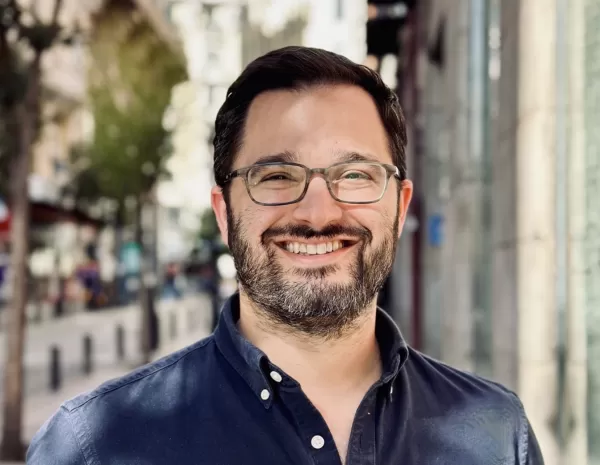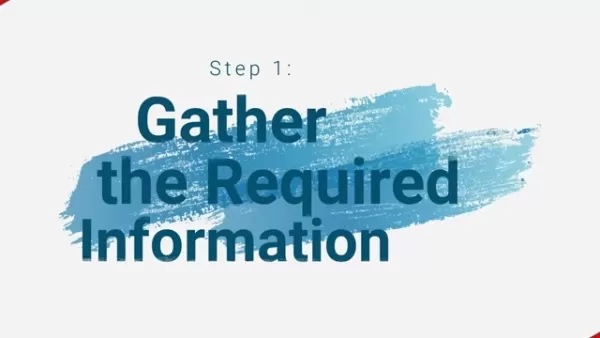This American VC is betting on European defense tech; that’s still very unusual

The American VC Betting Big on Europe’s Defense Tech Boom
While most U.S. venture capitalists chase AI unicorns or domestic defense startups, Eric Slesinger is taking a different path—one that leads straight to Europe. The former CIA officer turned investor is doubling down on seed-stage European defense tech, a niche that most American VCs overlook. His firm, 201 Ventures, recently closed a $22 million fund dedicated to backing Europe’s next generation of defense innovators.
But what makes Slesinger’s approach unique—and potentially prescient?
From CIA Gadgets to European Startups
Slesinger’s journey into defense tech investing wasn’t accidental. After years at the CIA, where he developed cutting-edge tools for intelligence operatives, he noticed a seismic shift: the private sector was becoming a key player in global security.
"I left because I saw that the private sector was increasingly shaping this competition—something I had always thought was purely government-driven," he explained on a recent StrictlyVC podcast.
With degrees from Stanford (mechanical engineering) and Harvard Business School, Slesinger had the technical and business chops to bridge the gap between defense and venture capital. But what really set him apart was his contrarian mindset.
"I’ve always enjoyed going where others don’t," he said. "At the CIA, we had a saying: ‘Go where others don’t go, do what they can’t do.’ That’s the same spirit I bring to investing."
Why Europe? Three Big Reasons
Most U.S. investors ignore European defense tech, but Slesinger sees three major opportunities they’re missing:
- Europe has world-class founders – "Just as hungry, just as smart as anywhere else."
- Governments are waking up – After years of underinvestment, Europe is now rapidly modernizing its defense infrastructure.
- The "gray zone" is heating up – Hybrid threats (cyberattacks, disinformation, drone warfare) are escalating, creating demand for new technologies.
The Cultural Hurdle: Defense Tech as a Taboo Topic
When Slesinger moved to Madrid in 2022, he launched the European Defense Investor Network—a group of entrepreneurs, investors, and policymakers pushing defense tech into the mainstream. But he quickly hit a cultural roadblock.
"In Europe, defense investing was seen as uncouth—something you did but didn’t talk about," he told TechCrunch. "Founders hesitated to build in this space because of the stigma."
That’s changing fast. The NATO Innovation Fund (backed by 24 allies) is pouring capital into defense startups, and high-profile companies like Helsing (an AI-for-warfare startup now valued at $5B+) are proving the sector’s potential.
201 Ventures’ Portfolio: Betting on the "Gray Zone"
Slesinger’s fund has eight investments so far, all targeting technologies that address Europe’s evolving security challenges:
- Delian Alliance Industries (Athens) – AI-powered surveillance towers for detecting drone threats.
- Polar Mist (Sweden) – Maritime drones with advanced navigation.
- Hypersonics & subsurface mapping – Emerging areas where Europe holds an edge.
But defense tech isn’t a quick flip—these startups often take years longer to mature than typical VC bets.
"If you have a 10-year fund lifecycle, you have to find ways to accelerate returns," Slesinger admits.
The Bigger Trend: Europe’s Defense Tech Boom
The numbers don’t lie: European defense startups raised $5.2B in 2024, up 24% from 2023—surpassing even AI funding. With geopolitical tensions rising and the U.S. commitment to NATO under question, that number is likely to keep climbing.
Slesinger’s early bet on Europe may have seemed risky, but as the continent arms itself for a new era of conflict, his vision is looking more like foresight.
TechCrunch Event: AI Innovation Showcase
Exhibit at TC Sessions: AI – Showcase your tech to 1,200+ decision-makers before May 9. Book now →
Berkeley, CA | June 5
Related article
 AI-Powered Cover Letters: Expert Guide for Journal Submissions
In today's competitive academic publishing environment, crafting an effective cover letter can make the crucial difference in your manuscript's acceptance. Discover how AI-powered tools like ChatGPT can streamline this essential task, helping you cre
AI-Powered Cover Letters: Expert Guide for Journal Submissions
In today's competitive academic publishing environment, crafting an effective cover letter can make the crucial difference in your manuscript's acceptance. Discover how AI-powered tools like ChatGPT can streamline this essential task, helping you cre
 US to Sanction Foreign Officials Over Social Media Regulations
US Takes Stand Against Global Digital Content Regulations
The State Department issued a sharp diplomatic rebuke this week targeting European digital governance policies, signaling escalating tensions over control of online platforms. Secretary Marco
US to Sanction Foreign Officials Over Social Media Regulations
US Takes Stand Against Global Digital Content Regulations
The State Department issued a sharp diplomatic rebuke this week targeting European digital governance policies, signaling escalating tensions over control of online platforms. Secretary Marco
 Ultimate Guide to AI-Powered YouTube Video Summarizers
In our information-rich digital landscape, AI-powered YouTube video summarizers have become indispensable for efficient content consumption. This in-depth guide explores how to build a sophisticated summarization tool using cutting-edge NLP technolog
Comments (3)
0/200
Ultimate Guide to AI-Powered YouTube Video Summarizers
In our information-rich digital landscape, AI-powered YouTube video summarizers have become indispensable for efficient content consumption. This in-depth guide explores how to build a sophisticated summarization tool using cutting-edge NLP technolog
Comments (3)
0/200
![AlbertDavis]() AlbertDavis
AlbertDavis
 August 4, 2025 at 2:48:52 AM EDT
August 4, 2025 at 2:48:52 AM EDT
Eric Slesinger’s move to back European defense tech is bold! Most VCs are obsessed with AI, but he’s diving into a niche that’s heating up. Smart or risky? 🤔


 0
0
![BruceWilson]() BruceWilson
BruceWilson
 August 4, 2025 at 2:01:00 AM EDT
August 4, 2025 at 2:01:00 AM EDT
Eric Slesinger’s bet on European defense tech is bold! Most VCs are obsessed with AI, but he’s diving into a niche that’s heating up. Smart move or risky gamble? 🤔


 0
0
![EricKing]() EricKing
EricKing
 July 27, 2025 at 9:20:54 PM EDT
July 27, 2025 at 9:20:54 PM EDT
Eric Slesinger’s move to back European defense tech is bold! 🛡️ Most VCs are obsessed with AI, but he’s eyeing a niche that’s heating up. Smart or risky? Time will tell.


 0
0

The American VC Betting Big on Europe’s Defense Tech Boom
While most U.S. venture capitalists chase AI unicorns or domestic defense startups, Eric Slesinger is taking a different path—one that leads straight to Europe. The former CIA officer turned investor is doubling down on seed-stage European defense tech, a niche that most American VCs overlook. His firm, 201 Ventures, recently closed a $22 million fund dedicated to backing Europe’s next generation of defense innovators.
But what makes Slesinger’s approach unique—and potentially prescient?
From CIA Gadgets to European Startups
Slesinger’s journey into defense tech investing wasn’t accidental. After years at the CIA, where he developed cutting-edge tools for intelligence operatives, he noticed a seismic shift: the private sector was becoming a key player in global security.
"I left because I saw that the private sector was increasingly shaping this competition—something I had always thought was purely government-driven," he explained on a recent StrictlyVC podcast.
With degrees from Stanford (mechanical engineering) and Harvard Business School, Slesinger had the technical and business chops to bridge the gap between defense and venture capital. But what really set him apart was his contrarian mindset.
"I’ve always enjoyed going where others don’t," he said. "At the CIA, we had a saying: ‘Go where others don’t go, do what they can’t do.’ That’s the same spirit I bring to investing."
Why Europe? Three Big Reasons
Most U.S. investors ignore European defense tech, but Slesinger sees three major opportunities they’re missing:
- Europe has world-class founders – "Just as hungry, just as smart as anywhere else."
- Governments are waking up – After years of underinvestment, Europe is now rapidly modernizing its defense infrastructure.
- The "gray zone" is heating up – Hybrid threats (cyberattacks, disinformation, drone warfare) are escalating, creating demand for new technologies.
The Cultural Hurdle: Defense Tech as a Taboo Topic
When Slesinger moved to Madrid in 2022, he launched the European Defense Investor Network—a group of entrepreneurs, investors, and policymakers pushing defense tech into the mainstream. But he quickly hit a cultural roadblock.
"In Europe, defense investing was seen as uncouth—something you did but didn’t talk about," he told TechCrunch. "Founders hesitated to build in this space because of the stigma."
That’s changing fast. The NATO Innovation Fund (backed by 24 allies) is pouring capital into defense startups, and high-profile companies like Helsing (an AI-for-warfare startup now valued at $5B+) are proving the sector’s potential.
201 Ventures’ Portfolio: Betting on the "Gray Zone"
Slesinger’s fund has eight investments so far, all targeting technologies that address Europe’s evolving security challenges:
- Delian Alliance Industries (Athens) – AI-powered surveillance towers for detecting drone threats.
- Polar Mist (Sweden) – Maritime drones with advanced navigation.
- Hypersonics & subsurface mapping – Emerging areas where Europe holds an edge.
But defense tech isn’t a quick flip—these startups often take years longer to mature than typical VC bets.
"If you have a 10-year fund lifecycle, you have to find ways to accelerate returns," Slesinger admits.
The Bigger Trend: Europe’s Defense Tech Boom
The numbers don’t lie: European defense startups raised $5.2B in 2024, up 24% from 2023—surpassing even AI funding. With geopolitical tensions rising and the U.S. commitment to NATO under question, that number is likely to keep climbing.
Slesinger’s early bet on Europe may have seemed risky, but as the continent arms itself for a new era of conflict, his vision is looking more like foresight.
TechCrunch Event: AI Innovation Showcase
Exhibit at TC Sessions: AI – Showcase your tech to 1,200+ decision-makers before May 9. Book now →
Berkeley, CA | June 5
 AI-Powered Cover Letters: Expert Guide for Journal Submissions
In today's competitive academic publishing environment, crafting an effective cover letter can make the crucial difference in your manuscript's acceptance. Discover how AI-powered tools like ChatGPT can streamline this essential task, helping you cre
AI-Powered Cover Letters: Expert Guide for Journal Submissions
In today's competitive academic publishing environment, crafting an effective cover letter can make the crucial difference in your manuscript's acceptance. Discover how AI-powered tools like ChatGPT can streamline this essential task, helping you cre
 US to Sanction Foreign Officials Over Social Media Regulations
US Takes Stand Against Global Digital Content Regulations
The State Department issued a sharp diplomatic rebuke this week targeting European digital governance policies, signaling escalating tensions over control of online platforms. Secretary Marco
US to Sanction Foreign Officials Over Social Media Regulations
US Takes Stand Against Global Digital Content Regulations
The State Department issued a sharp diplomatic rebuke this week targeting European digital governance policies, signaling escalating tensions over control of online platforms. Secretary Marco
 Ultimate Guide to AI-Powered YouTube Video Summarizers
In our information-rich digital landscape, AI-powered YouTube video summarizers have become indispensable for efficient content consumption. This in-depth guide explores how to build a sophisticated summarization tool using cutting-edge NLP technolog
Ultimate Guide to AI-Powered YouTube Video Summarizers
In our information-rich digital landscape, AI-powered YouTube video summarizers have become indispensable for efficient content consumption. This in-depth guide explores how to build a sophisticated summarization tool using cutting-edge NLP technolog
 August 4, 2025 at 2:48:52 AM EDT
August 4, 2025 at 2:48:52 AM EDT
Eric Slesinger’s move to back European defense tech is bold! Most VCs are obsessed with AI, but he’s diving into a niche that’s heating up. Smart or risky? 🤔


 0
0
 August 4, 2025 at 2:01:00 AM EDT
August 4, 2025 at 2:01:00 AM EDT
Eric Slesinger’s bet on European defense tech is bold! Most VCs are obsessed with AI, but he’s diving into a niche that’s heating up. Smart move or risky gamble? 🤔


 0
0
 July 27, 2025 at 9:20:54 PM EDT
July 27, 2025 at 9:20:54 PM EDT
Eric Slesinger’s move to back European defense tech is bold! 🛡️ Most VCs are obsessed with AI, but he’s eyeing a niche that’s heating up. Smart or risky? Time will tell.


 0
0





























